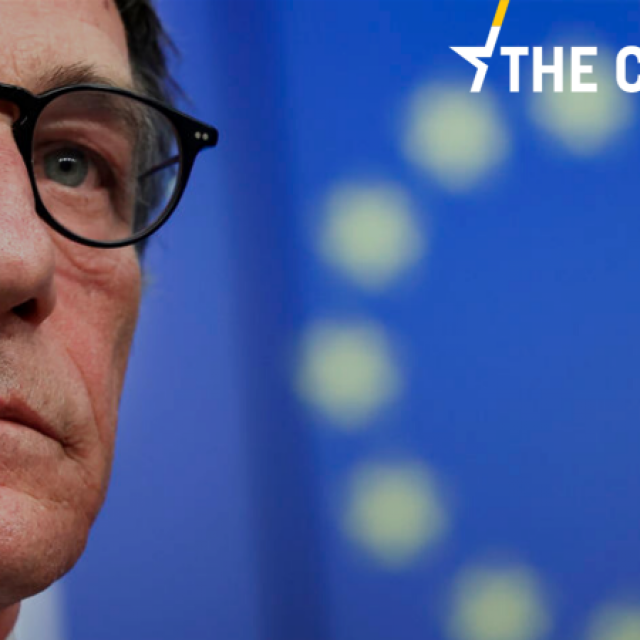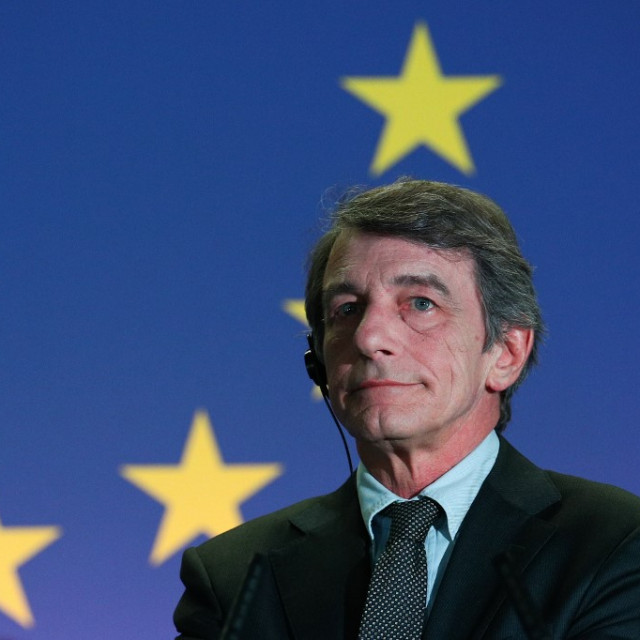
In the pandemic, the European Parliament pushed for a European solidarity response. Why is it easier to reach agreement in the Parliament than in the Council of national governments?
The parliament has the task of representing the citizens, of being directly engaged in the events that have involved European public opinion during this period. This sensitivity has led us to remain open and to make not only Parliament but the European Union work, and to fight for a common response. We understood from the outset that no country could save or protect itself alone. We must have a European response. Now some instruments have already been put in place and no country is bare-handed. However, we must look to the medium to long term with the debate that we are having these days on the Recovery Fund and the EU budget.
What will you propose in the mini-summit between the Presidents of the European institutions and Chancellor Merkel?
As Parliament, we welcome the Commission proposal. Of course, we want it to be more ambitious both as regards the EU budget and the Recovery Fund. We are convinced by the level of money allocated to the recovery plan. And we are concerned because we do not want these resources to lower expectations on the budget. We need to support successful EU programmes, to bet on the Green Deal, to have potential on EU programmes, agricultural policy, industry, research and youth. We would not want these two plans to somehow penalise the overall response and budget. It is interesting also because the recovery plan goes hand in hand with the budget and this also increases the Community's capacity to manage the union – with the Parliament's control and a strong Commission initiative - without encroaching on a purely intergovernmental dimension. I believe that the Union can strengthen itself in this way now.
Do you expect an agreement on the Recovery Fund and the Union's multiannual budget at the European Council on 17-18 July? It is likely that, in order to achieve unanimity, the compromise will be less ambitious than the Commission proposal: what are the indispensable element for the Parliament?
The European Council will come up with a proposal which then has to reach the Parliament, which will have the last word. This is not a process that ends in the Council. I believe that this is clear and understood by everyone. We say that we need not to go below the threshold of the amount that has been indicated (EUR 750 billion as regards the Recovery Fund). We need to invest on this and a timetable of new own resources from next year. Let us think about plastic taxes, emission trading system, digital and other forms of financing the Union without going through national budgets. This is also in the interests of the citizens. And then we certainly need to have a direction, a management of this recovery plan with the Parliament at its heart. We want delegated acts, not highly bureaucratic Comitology that could block the process. I believe that these are demands that go exactly in the line of the European response.
With regards to the own resources, how important are the idea of a European public debt and taxation and the overcoming of unanimity for the future of the Union?
We will not decide on overcoming unanimity at this stage. It needs other procedures. But we are betting on it and we have put it on the agenda for this parliamentary term. As a Parliament, we have seen with great interest the German Presidency point out its own priorities for the semester, and among these there is also an indication concerning the increase in European fiscal capacity. In my opinion, this is a crucial point. We need European fiscal reform. This will give us new possibilities and will also make it clear that we need a European tax reform, will show the wealth of our market, will provide more equality and new opportunities, and I think this is very important. Of course we are talking about a job that does not end with the European Council of 17 and 18 July.
The pandemic has shown that citizens demand and expect European answers. Do we need a Conference on the future of Europe, or would it be better to start reforming the Treaties now, before the changes in political leadership in Germany, France and Italy?
We need it because we want to reform the EU with consensus and participation. We do not want recipes that only come from above. We need a Europe that is once again animated by participation and listens to the citizens. That is why the Conference is very important and certainly there will also be those elements which will allow some great reforms to take place. I am convinced that we must, for example, increase the capacity of the EU in the health response. We need to have a Union with more powers, to provide a good degree of protection for citizens not only from pandemics, but also from crises that the global world brings to us. I believe that the conference is an excellent exercise in participation of a new Europe that we want to build from the bottom up, not from above.
The Parliament is calling for legislative initiative, but in the one area where it has it, the reform of the Treaties, it has never used it. Is it not time to reform the Union?
I hope so now. Of course, the reform of the Treaties is done by consensus, not by trying to impose it from above. I believe that all the instruments can then be used. We need a Parliament with more power of initiative than it has to date. We have been saying this for a year now and I believe that the conference can give us some momentum on this point too. Then there is the right of veto, which of course often blocks decisions, which does not make people take responsibility. I think that if we want to point out a new path after the covid it is that of a Europe with a more functioning democracy, and that this is a demand that comes from our public opinion. It is interesting to see how even the polls have been reversed now. Today, people are calling for a Union with more powers, unlike perhaps some time ago, when there was some disaffection towards the Union. Now everyone feels that things happen around our lives so that Europe can truly be a life insurance policy for everyone.





Za sudjelovanje u komentarima je potrebna prijava, odnosno registracija ako još nemaš korisnički profil....